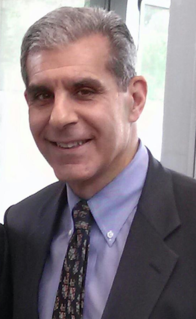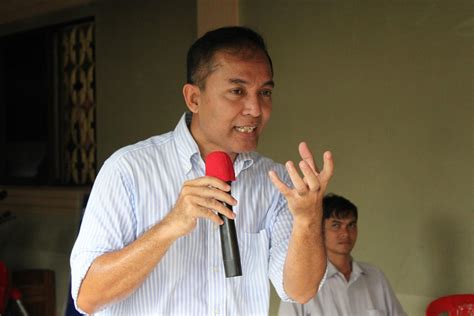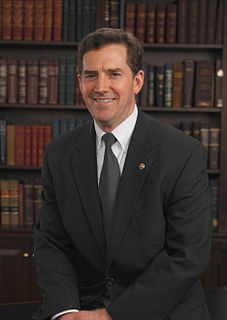A Quote by Joe Kyrillos
What middle-income Americans want most of all is a job. We need a generous safety net for the most vulnerable in our society, but for most people the biggest social accomplishment that we can help them achieve is a good-paying job.
Related Quotes
Most Americans believe in fairness; we believe that people should work hard but there should be a safety net. We believe in saving the quality of our air and water for our children. Most Americans want action on climate change. You can just go through the list. Most Americans believe in progressive taxation.
It is the most ambitious and driven among us who are the most sorely in need of having our reckless hopes dampened through immersive dousings in the darkness which religions have explored. This is a particular priority for secular Americans, perhaps the most anxious and disappointed people on earth, for their nation infuses them with the most extreme hopes about what they may be able to achieve in their working lives and relationships.
Humans used to desire love, money, food, shelter, safety, peace and freedom more than anything else. The last 30 years have changed us. Now people want to have a good job, and they want their children to have a good job. This changes everything for world leaders. Everything they do - from waging war to building societies - will need to be carried out within the new context of the need for a good job.
The vast majority of Americans want a government that creates the conditions for them to have a chance to get into the middle class, the kind of growth and the kind of educational opportunities. Most people would - the vast majority of Americans would much rather have a job that pays more than a welfare check.
We need a more holistic approach in which we take account of society's most vulnerable sectors. We shouldn't just do broad averaging of country statistics but rather we need to disaggregate the data to determine where the resources are most needed. In most cases, it's usually the reverse: those who are most marginalized - minorities and rural and remote communities - get the least attention and money.
The United States is probably the most [socially] mobile society in the history of the world. The virtues that are most valuable in it are diligence, discipline, ambition, and a willingness to take risks. Education and credentials are most important in government; elsewhere most skills are learned on the job.
If we are to garner sustained U.S. domestic support for future trade agreements, we have to make sure those Americans who have suffered as a consequence of past agreements have an effective social safety net, adjustment assistance, opportunities for retraining and new job creation that enables all Americans to thrive.

































